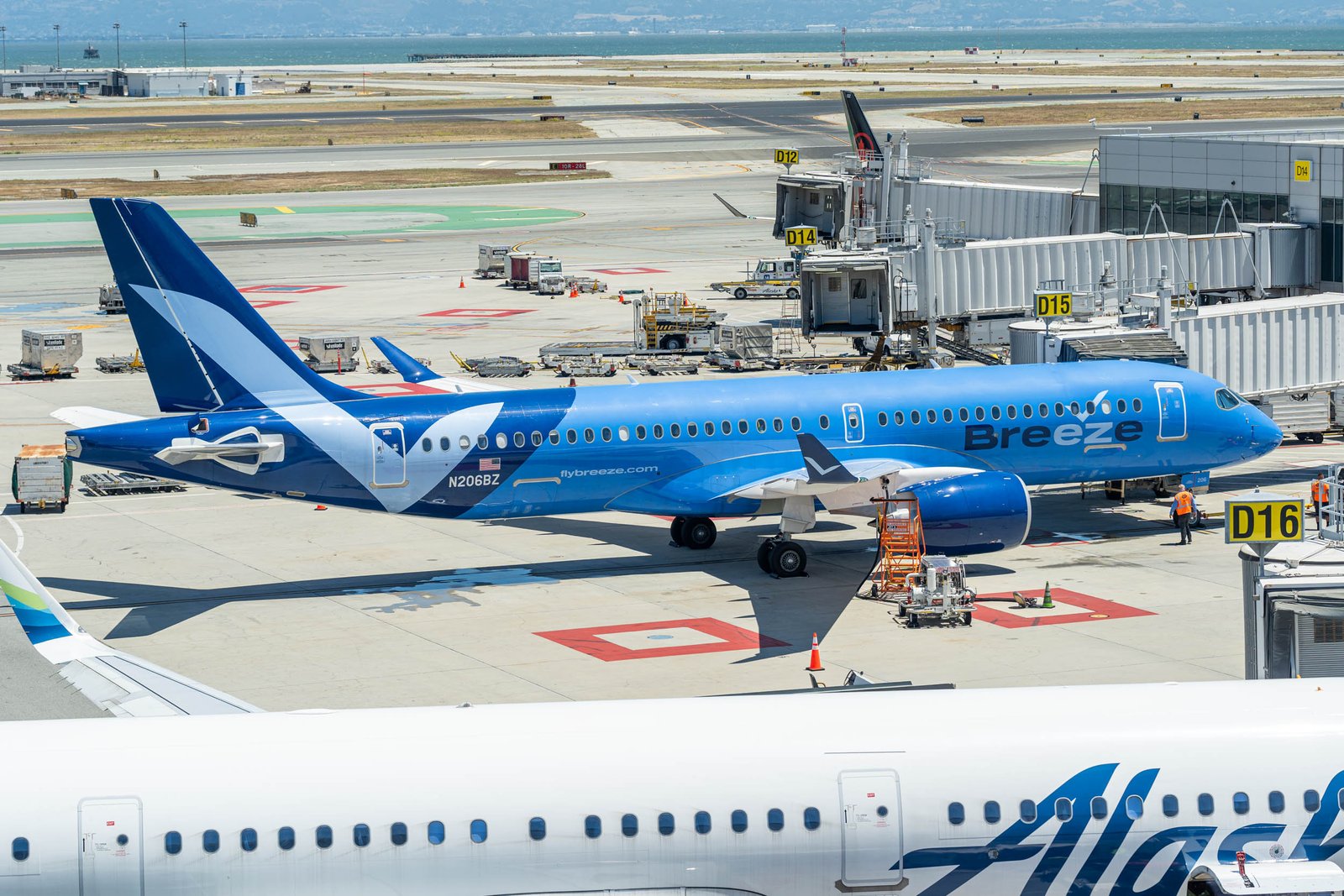Breeze Airways, the not-so-new-anymore startup airline by JetBlue founder David Neeleman, is moving to its next phase. The airline, which began service in May 2021, is gearing up to operate all of its scheduled flights on its fleet of Airbus A220 aircraft by the end of the year. This marks a significant milestone for the airline as it discontinues service on its small fleet of secondhand Embraer E190/195 jets.
Breeze Airways took delivery of its first A220 in December 2021 and currently has 22 of the type in its fleet. The airline expects to take delivery of 10 more A220s through 2024. In a recent announcement, the airline revealed that it had exercised 10 purchase right options, bringing its total order of A220-300s to 90 airplanes with 30 options remaining.
The transition to operating solely on A220 aircraft will allow Breeze Airways to leverage the capabilities of these modern jets. The A220s offer greater fuel efficiency and a longer range, enabling the airline to economically fly long, thin routes that may not be sustainable using traditional larger narrow-body jets like the Airbus A320 or the Boeing 737.
Breeze Airways follows a point-to-point operating model, focusing on operating nonstop flights between smaller markets that lack direct air connectivity. With the A220s, the airline aims to expand its route network and connect cities across the contiguous U.S. in a cost-effective manner.
As part of its expansion plans, Breeze Airways announced the addition of Coastal Carolina Regional Airport in New Bern, North Carolina, as its 50th destination. The airline will offer service from Bradley International Airport near Hartford, Connecticut, and Orlando International Airport in Florida to the new destination. Additionally, a new route between Huntsville International Airport in Alabama and Los Angeles International Airport will commence on June 14.
The introduction of the A220s has allowed Breeze Airways to enhance its onboard offerings. The jets feature Breeze’s first-class seats and a customized cabin, along with improved connectivity options. The airline is retrofitting the entire fleet with Wi-Fi and streaming entertainment, ensuring a seamless travel experience for passengers.
Despite its rapid expansion and route network growth, Breeze Airways has faced financial challenges since its launch. While startup airlines typically operate at a loss initially, filings with the Department of Transportation suggest that Breeze has burned through most of its startup capital. Although the airline is not required to disclose its complete financials as a privately held company, indications point to financial struggles.
CEO David Neeleman remains optimistic about the airline’s future profitability, stating that Breeze expects to turn a profit in 2024. He acknowledged the challenges faced in achieving operational efficiency but expressed confidence in the airline’s trajectory towards profitability in the coming years.
In addition to focusing on its core scheduled operations with the A220s, Breeze Airways plans to utilize its Embraer jets exclusively for charter operations. The airline has seen a significant increase in charter demand, particularly in serving NCAA basketball teams. Neeleman highlighted the airline’s success in the charter segment and emphasized its commitment to this niche market.
As Breeze Airways continues to evolve and expand its operations, the airline remains committed to providing a unique and customer-centric travel experience. With a modern fleet of A220 aircraft, a diverse route network, and a focus on operational efficiency, Breeze is poised to establish itself as a formidable player in the competitive airline industry.

